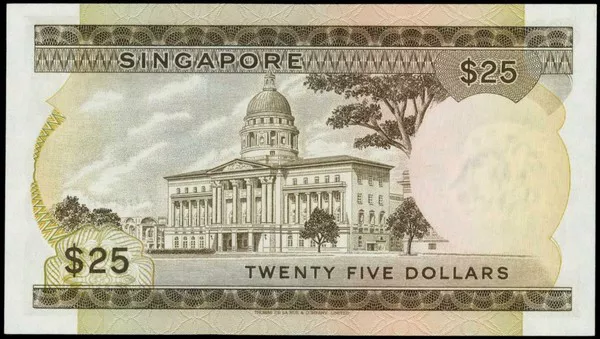Money is a crucial aspect of any economy, and Singapore is no exception. As one of the world’s most prosperous economies, Singapore has a stable and well-developed financial system that attracts business and investment from around the world. In this article, we will explore the various forms of money used in Singapore and how they contribute to the country’s economic growth.
Singapore is a small island nation located in Southeast Asia. Despite its small size, it has become a global economic powerhouse, with a high standard of living, excellent infrastructure, and a strong financial system. The currency used in Singapore is the Singapore dollar (SGD), which is issued by the Monetary Authority of Singapore (MAS).
History of Singapore Currency
The history of the Singapore dollar dates back to 1965 when Singapore gained independence from Malaysia. At first, the country continued to use the Malaysian ringgit as its official currency, but this arrangement was short-lived. In 1967, the Singapore government introduced its own currency, the Singapore dollar, to replace the Malaysian ringgit.
At the time of its introduction, the SGD was pegged to the British pound sterling, but this changed in 1973 when the Singapore government adopted a floating exchange rate system. This means that the value of the SGD is determined by market forces such as supply and demand.
Today, the Singapore dollar is widely accepted in the country and is also used as a reserve currency in other countries due to its stability and liquidity.
Forms of Money Used in Singapore
1. Cash
Cash is still widely used in Singapore, particularly for small transactions. The SGD comes in denominations of $2, $5, $10, $50, $100, $500 and $1,000. Most retail shops, food outlets, and transport services accept cash payments.
2. Credit and Debit Cards
In recent years, there has been a significant increase in the use of credit and debit cards in Singapore. Most businesses accept card payments, and contactless payment methods such as Apple Pay and Samsung Pay are becoming more popular.
3. Online Payment Systems
With the rise of e-commerce, online payment systems have become an essential part of the economy. Singapore has several online payment options, including PayPal, AliPay, and GrabPay. These systems allow customers to make purchases online and transfer money to individuals and businesses in other countries.
4. Digital Currencies
Digital currencies such as Bitcoin and Ethereum are gaining popularity in Singapore. The Monetary Authority of Singapore recognizes digital currencies as a form of payment, but they are not yet widely accepted by merchants.
Impact on the Economy
The use of various forms of money in Singapore has had a significant impact on the country’s economy. Here are some of the ways:
1. Improved Efficiency
The availability of multiple payment options has made transactions faster and more efficient. This has helped businesses increase their productivity and reduce costs by eliminating the need for manual cash handling.
2. Increased Consumer Spending
The widespread use of credit and debit cards has enabled consumers to spend more freely. This has boosted consumer spending, which is a critical driver of economic growth.
3. Globalization
Online payment systems and digital currencies have made it easier for businesses in Singapore to transact with partners and customers in other countries. This has facilitated globalization and helped Singapore become a hub for international trade and commerce.
4. Reduced Cash Handling Costs
Cash handling can be expensive for businesses due to the need for secure transportation, storage, and counting. The increased use of non-cash payment methods has reduced these costs, resulting in higher profits for businesses.
How to buy currency in Singapore
In Singapore, you can buy currency in several ways:
1. Exchange counters: You can visit an exchange counter at the airport, banks, or money changers located throughout the city. They usually operate from 9 AM to 9 PM and offer competitive rates.
2. Online currency exchange platforms: There are several online platforms such as TransferWise, XE, and CurrencyFair that provide currency exchange services. You can compare the rates on these platforms and choose the one that offers the best deal.
3. Banks: Most banks offer currency exchange services for their customers. You can visit your bank’s branch or use their online banking platform to exchange currencies.
Before buying currency, it’s essential to research the current exchange rates and compare them across different sources. It’s also important to be aware of any additional fees or charges associated with currency exchange, so you can calculate the total cost involved in buying currency.
Conclusion
In conclusion, Singapore has a diverse range of payment options that contribute to its thriving economy. The Singapore dollar is widely accepted both domestically and internationally, and the use of non-cash payment methods has improved efficiency, increased consumer spending, facilitated globalization, and reduced cash handling costs.
As Singapore continues to grow and evolve, it is likely that we will see further developments in the payment landscape. However, one thing is clear: the use of various forms of money has played a crucial role in enabling Singapore’s success as a prosperous and thriving economy.


